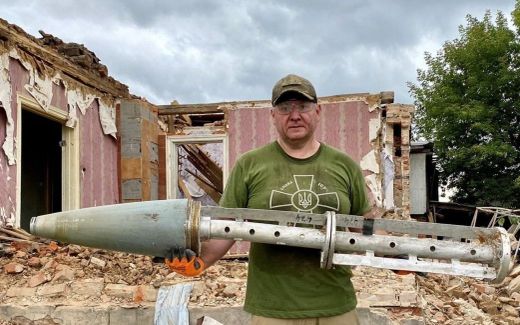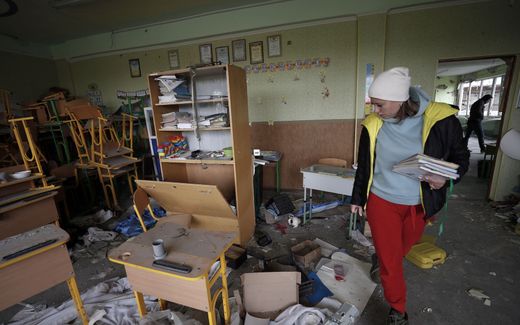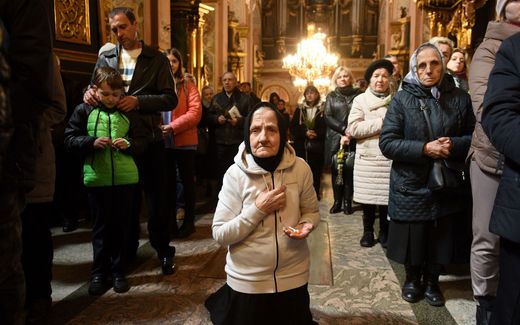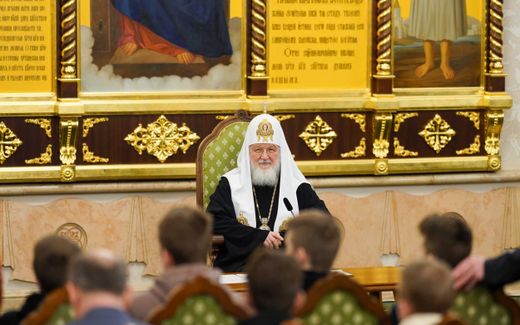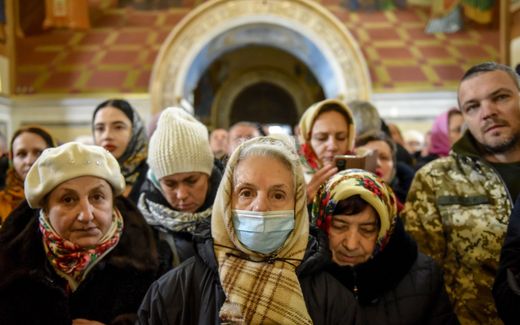Ukrainian church has less than a week to leave beloved cave monastery
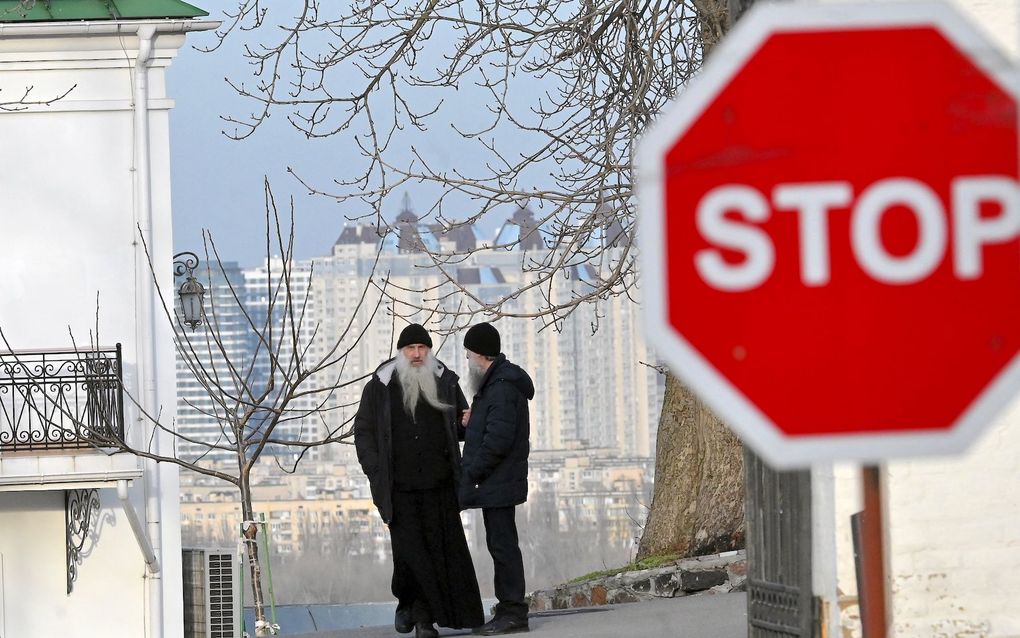
Two monks speak to each other at the entrance of the famous Kyiv Lavra monastery. The Ukrainian government has decided, the monks of the Ukrainian Orthodox Church have to leave the complex. Photo AFP, Sergei Supinsky
Eastern Europe
It seems all is set for the Ukrainian government to evict the Ukrainian Orthodox Church (UOC) from the famous Kyiv-Pechersk Lavra. This is the 'punishment' for the church remaining (unwillingly) tied to the Moscow Patriarchate.
The departure date has been set for next Wednesday, March 29. The centuries-old complex is the church's headquarters, the largest faith community in Ukraine. According to the authorities, conditions of use have been violated, but it is unclear which conditions are meant.
According to the abbot of the monastery, Metropolitan Pavel, there are police officers in the building all the time. These are behaving calmly, SPZH reports. He says the monks have spent 35 years "doing everything" to improve life at the complex and restore the buildings. "We have no place to take everything with us," he says, "nor do we intend to leave anything behind."
He rejects the accusation that the UOC is tied to Russia. "We have remained loyal to our homeland, our people. We pray for the government, even if it is far from the truth. I ask everyone for prayers for the holy monastery," Metropolitan Pavel said. Last May, the UOC tried to cut all connections with Moscow. But canonically, the Ukrainian church is still connected to the Russian one, since Moscow Patriarchate has not cut ties with the UOC, which is required for true independence.
Ideology
Metropolitan Epiphany of the 'rival' church Orthodox Church of Ukraine (OCU), however, said in a statement that the Lavra in Kyiv had been "deliberately transformed into a centre for promoting the ideology of Russian World"; the vision leading behind the Russian invasion.

According to the Ukrainian government, the only option for the clergy to remain in the Lavra is to transfer to the new Orthodox Church of Ukraine (OCU), which is attached to the Patriarchate of Constantinople. The main parts of the complex (such as the refectory church and the Cathedral of the Ascension) are already in use by the OCU.
With this, the Ukrainian government of President Zelenksy favours the OCU. Clearly, the OCU is more Western-oriented, and for that reason, for example, advocates Christmas on 25 December instead of 7 January, as the Eastern church was used to for centuries.
Caves
The Kyiv-Pechersk Lavra is a monastery from the 11th century. It is also called the Cave Monastery because of the caves beneath the buildings.
The complex is one of the most important centres for Eastern Orthodoxy, as a monastery and a seminary. The remains of respected saints, as well as famous historical figures, are buried on its grounds.
The monastery was closed during the Soviet era. In 1988, the work of the monastery and the Theological Seminary resumed: the authorities transferred ground structures and distant caves to the church, and in 1990 the nearby caves. Official ownership remained in the hands of the state; use, however, to the church. In 1990, UNESCO added the Kyiv-Pechersk Lavra to the World Heritage List. Since 1994, Metropolitan Pavel (Lebed) has been the abbot of the Lavra.
Relics
On Wednesday, Ukraine's Culture Ministry employees did an "inspection" of the caves to check the "safety of the museum exhibits". The plan is to open the caves (with the relics) daily for the public. This was met with criticism from the Russian side that the state does not respect the church as an "ancient custodian". Relics were also turned into museum objects during communism.
According to RISU, however, there are also indications that seminarians took objects out of the Lavra. These would mainly be books, but also furniture.
This week, the UOC synod asked President Zelensky whether the monks could remain in the Lavra. The church's primate and some bishops went to the presidential residence in person but were not received. They waited on the pavement for more than three hours because they did not have an appointment with Zelensky, according to SPZH. The Union of Orthodox Journalists speaks about a "demonstrative humiliation".

The UOC perceives the government's decision as injustice and "a griping by Culture Ministry officials". According to Metropolitan Onufry, it was not the state but the church that bore the cost of restoring the complex after 1990. Incidentally, RISU reports that there has been encroachment on the buildings, including through units of air conditioning on historic facades.
Roman Catholic Pope Francis also called for respect for religious shrines. A similar sound came from the World Council of Churches (WCC). Russian Patriarch Kirill fears that, in time, all church buildings could be endangered.
Extremes
A week before the deadline, it is already clear that some Lavra residents will go "to extremes" to stay in the complex. Those who leave compare it to the situation in the 1920s and 1930s when the church was suppressed by communism.
Meanwhile, there are reports, for example via Russian Ria Novosti, that students at the Theological Academy are packing up their belongings, although lectures are still going on.
Freedom of religion
The Kremlin sees the Ukrainian government's stance as proof of Kyiv's wrong course. The Russian Commissioner for Human Rights is trying to take the case to international organisations like the UN and OSCE as violating freedom of religion.
Related Articles


